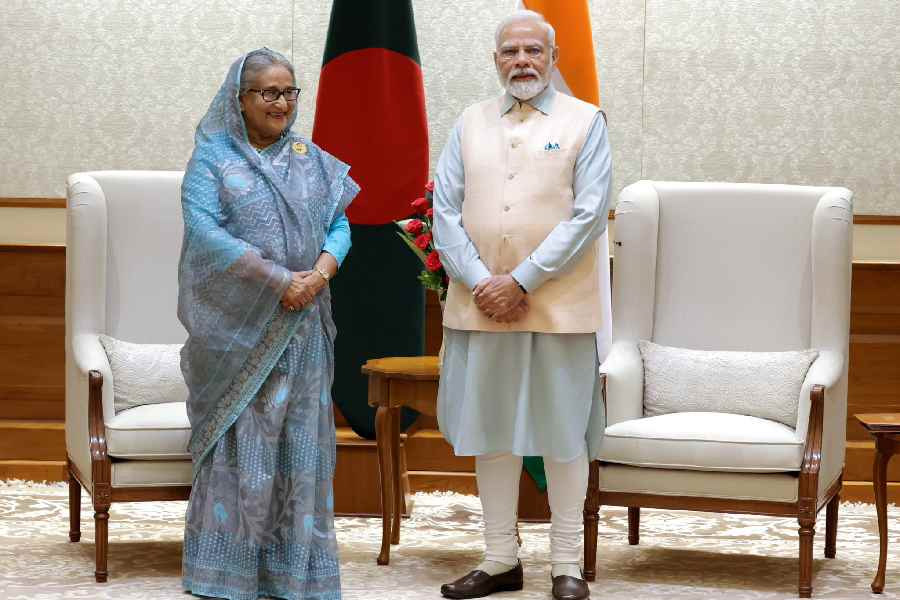
Instead of adopting a tough foreign policy line, India must work to regain Bangladeshi people’s trust lost earlier.
Authors
Sreeradha Datta, Professor, Jindal School of International Affairs, O.P Jindal Global University, Sonipat, Haryana, India.
Summary
On August 5 at 2:35pm (BST), a Bangladesh army helicopter took off from a helipad within the sprawling Ganabhan complex in Dhaka. Besides the pilot and two security officers, the only other passenger onboard was Bangladesh’s prime minister, Sheikh Hasina.
Just an hour before, Hasina had resigned after 15 years of uninterrupted rule marked by conflict-ridden politics, egregious human rights abuses, massive corruption and destruction of state and democratic institutions.
The olive-green chopper carrying Hasina lifted over the high-rise buildings surrounding Ganabhaban, landing shortly at the nearby Kurmitola airbase where she boarded a waiting C-130 aircraft with the call sign AJAX-1431.
The plane took off within minutes and headed west, landing at Hindon airbase in Ghaziabad near New Delhi. The Indian security establishment’s sanctuary to Hasina only exposed – and exploded – the myth that New Delhi does not interfere in Bangladesh’s affairs.
Hasina left behind a country in turmoil.
Barring the patchy presence of some army units, Bangladesh had no government for three days. In those three days, Awami League cadres and the party’s student front (Chhatra League) supporters engaged in bloody street-fighting with anti-government protesters and Jamaat-e-Islami and Islami Chhatra Shibir activists.
The clashes, which had started on July 14 as students protested against a job quota system that favoured Awami League followers, left nearly 500 dead and thousands injured across Bangladesh.
While some normalcy returned to Dhaka by August 7, other district towns and villages continued to be ravaged by miscreants and troublemakers, besides enraged supporters of other political parties opposed to the Awami League.
Yet, there was no sign of any legitimate authority in control until August 8 evening when an interim government led by Nobel laureate Mohammad Yunus took oath of office, even as New Delhi went ahead to pull out all its non-essential staff from its high commission and families of diplomats from Dhaka.
Hasina’s fall and swift ouster and the crumbling of the Awami League edifice has prompted forces such as the Bangladesh Nationalist Party (BNP) and the Jamaat-e-Islami to step in to fill the political vacuum with a helpless New Delhi fulminating about an imminent takeover by extremist Islamist forces.
Published in: 360info.org
To read the full article, please click here.

